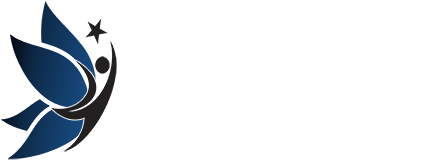Covid-19 Relief Passes House Budget Committee
The wait for the promised $1,400 direct checks may be coming to an end as Biden’s Covid relief bill advances to the House floor. On Monday, the House Budget Committee voted along party lines to officially bring the bill for a full chamber vote. That means Democrats are one step closer to getting relief passed before unemployment benefits expire on Mar. 14, the de facto deadline for Congressional action.
Democrats chose to pursue the American Rescue Plan through reconciliation, thereby bypassing the need for a 60-vote filibuster threshold in the Senate, allowing it to pass with 51 votes. Since that decision, Republicans have decried Biden’s call for unity, with the expectation that unity means giving them exactly what they want. However, the White House may more than just Republican pushback to worry over. Moderate Senate Democrats, ever a foil to progressive campaign promises, may stand in the way of some critical parts passing in the upper chamber.
What’s in the Package?
Along with direct checks, the 590-page bill, which you can read here, also includes enhanced unemployment aid. It will increase current payments from $300 to $400 and extend benefits until Aug. 29. The package also allocates funds to help with vaccine rollout. There is $8.75 billion for vaccines and testing, $20 billion for vaccine research, $3 billion for a national stockpile, and $25 billion for testing and contact tracing.
Rental assistance will also get a boost of $25 billion, along with $5 billion to help struggling renters and $5 billion to assist those at risk for homelessness. The eviction moratorium will extend until Sep. 30.
Biden’s plan will also restore emergency paid leave, which expired in December, until Sep. 30. It also provides $15 billion for small businesses, independent of the existing Paycheck Protection Program, as well as non-profit financing programs.
One of the most significant parts of the bill is the expanded child tax credit. It increases the credit from $2,000 to $3,000, sets the credit at $3,600 for parents of children under age 6, and adds 17-year-old dependents to eligibility. This tax credit would reduce child poverty by 45%, according to Columbia University’s Center on Poverty and Social Policy. That’s 5 million children that would no longer live in poverty.
What Don’t Moderates Like About It?
Two sticking points in the legislation are the $350 billion intended for state and local funding and the $15 minimum wage increase. Centrist lawmakers have been lobbying for more direct funding of state and local. Their concern is that some states may redirect federal aid to cut taxes rather than spending it on pandemic-related needs. However, those lawmakers are not suggesting reducing funding but instead want to repurpose $50 billion for broadband.
Where centrist Democratic legislators get it wrong is their reluctance to include the $15 minimum wage increase. Both Senators Joe Manchin (D-WV) and Kyrsten Sinema (D-AZ) have expressed concern (link 7) about adding the minimum wage increase to a reconciliation bill because the Senate Parliamentarian must still approve its inclusion.
The White House Amasses Support for Covid-19 Bill
President Biden for his part is not budging on his campaign promise of delivering a more robust Covid-19 relief bill. While visiting Pfizer’s manufacturing facility in Kalamazoo, Michigan, Biden said: “Let me ask them: What would they have me cut? What would they have me leave out? Should we not invest $20 billion to vaccinate the nation? Should we not invest $290 million to extend unemployment insurance for the 11 million Americans who are unemployed so they can get by?”
On Wednesday, 150 CEOs from the nation’s largest businesses endorsed Biden’s plan. In the statement, they intimated, “The American Rescue Plan provides a framework for coordinated public-private efforts to overcome OVID-19 and to move forward with a new era of inclusive growth.” It seems the business world at least, is behind the plan, a powerful ally in Biden’s push to pass the bill in the Senate.
What’s Next for the Package?
Although the House floor will vote on the Covid-19 relief bill Friday, Democrats have only two weeks to get it onto Biden’s desk following. In other words, the Senate will be on a tight deadline and have little time for in-party squabbles and drawn-out amendment debates. Senator Bernie Sanders (I-VT) expects the Parliamentarian to rule as soon as today on the minimum wage inclusion. However, more than arcane Senate rules, moderate Democrats, of whom every vote is necessary, pose the biggest threat to passing the bill on time.
How Can You Help?
Covid-19 has wreaked havoc in the lives of Americans. It has hit working families who are now out of work, and small businesses that were forced to close their doors particularly hard. At Voices of Hope Inc., we seek to help those who qualify battle financial devastation. Please consider contributing to our mission by visiting the Voices of Hope Project Shop.
Author Mayra Conte is a graduate student from Southwest Florida who blogs about current events with a focus on Covid-19. Follow her @mayracontes.
HELP COVID VICTIMS
Through the nonprofit Voices of Hope Project Inc., we aim to help those suffering financially due to COVID-19. All of the Voices of Hope Project Shop proceeds go to help Covid-19 victims who apply to our program. We encourage you to shop and share content from the video gallery.

